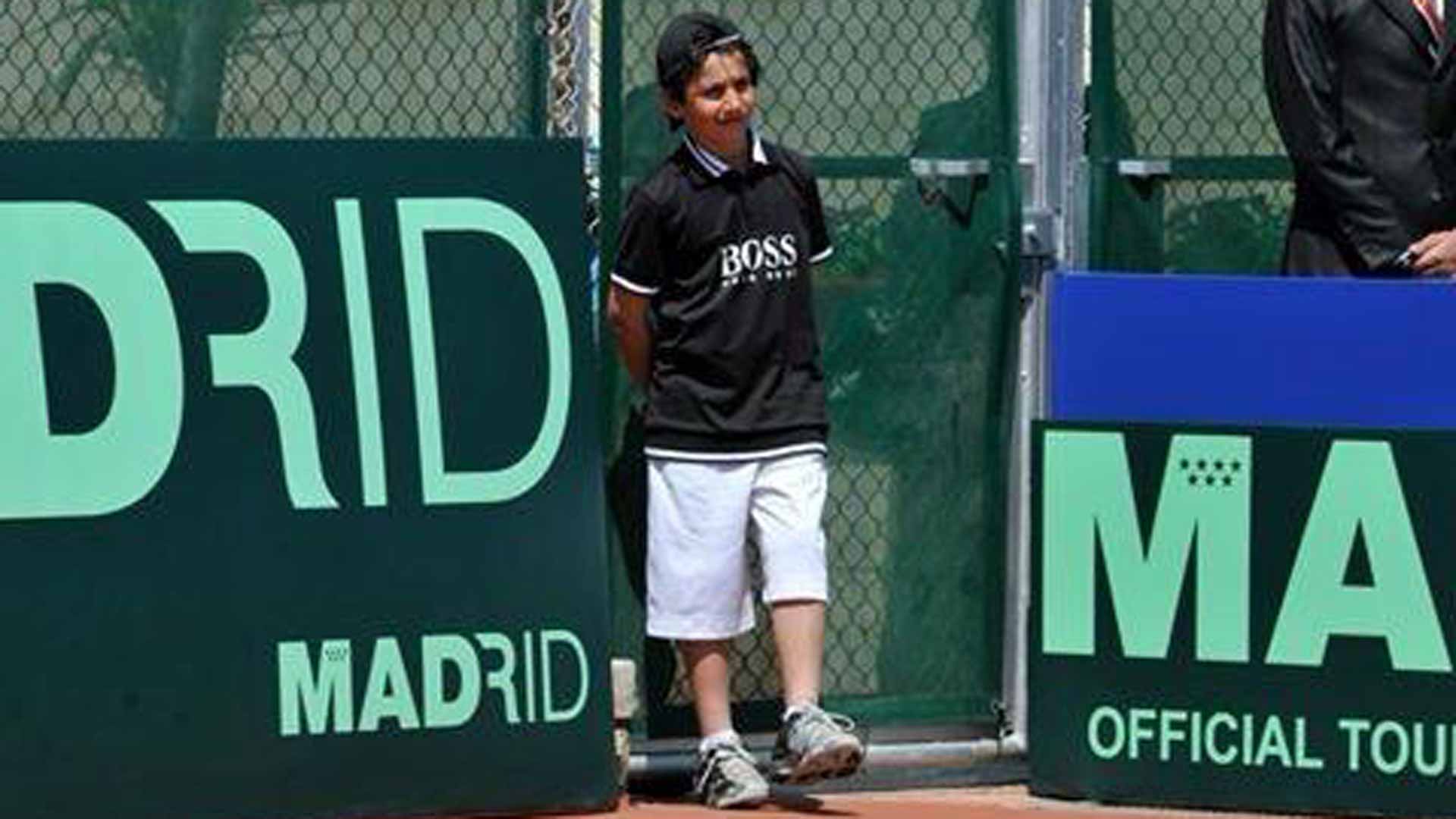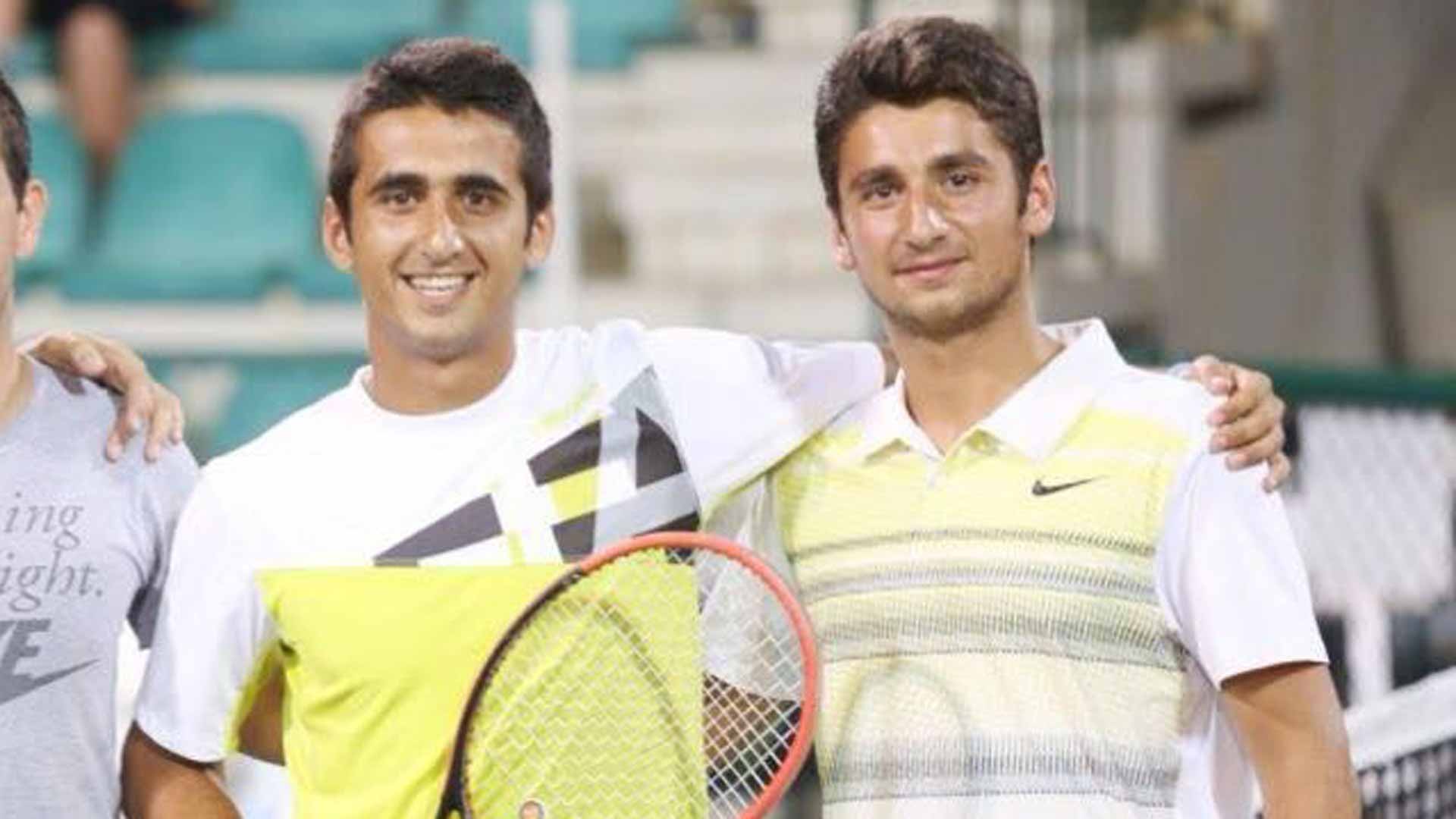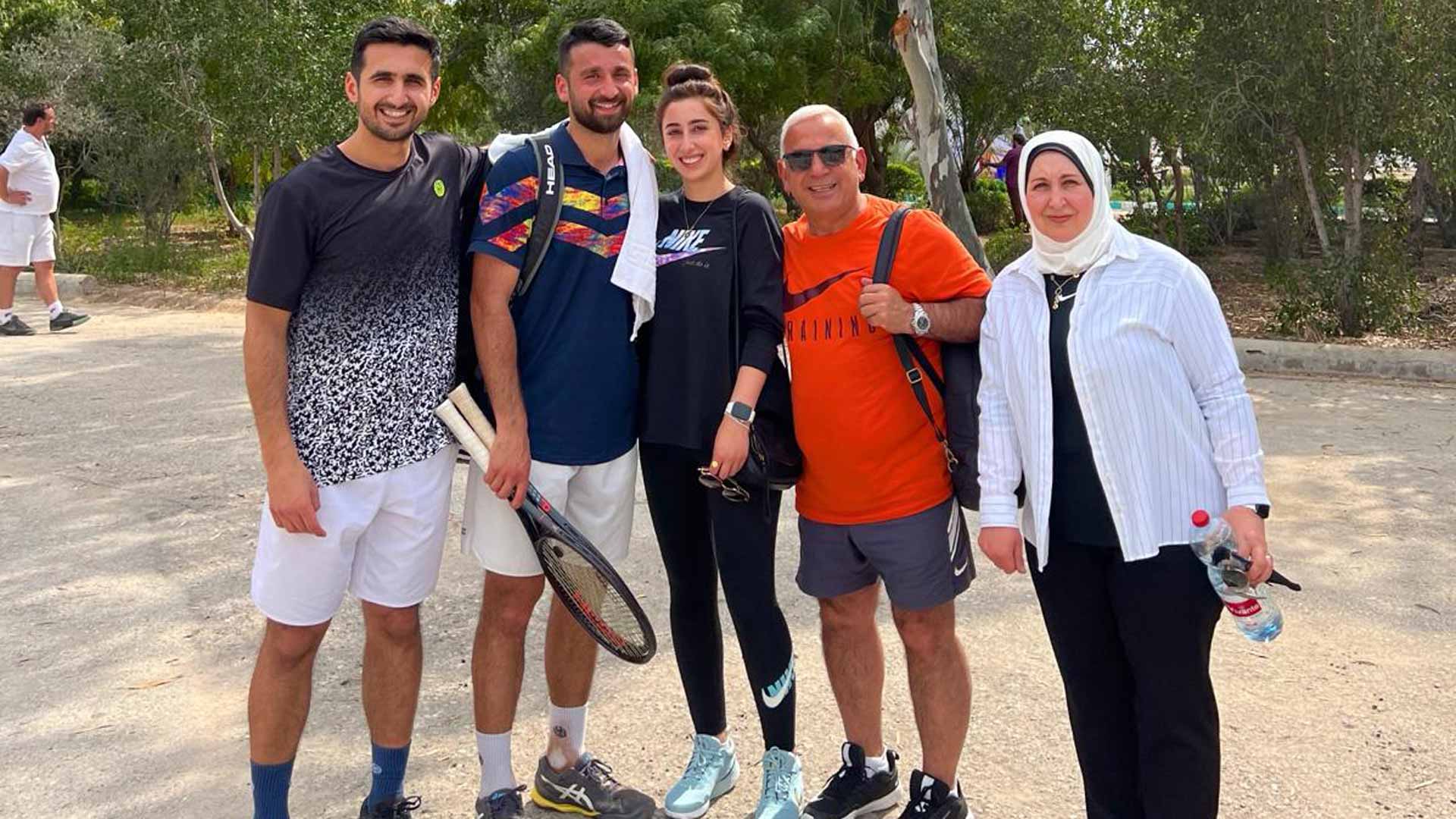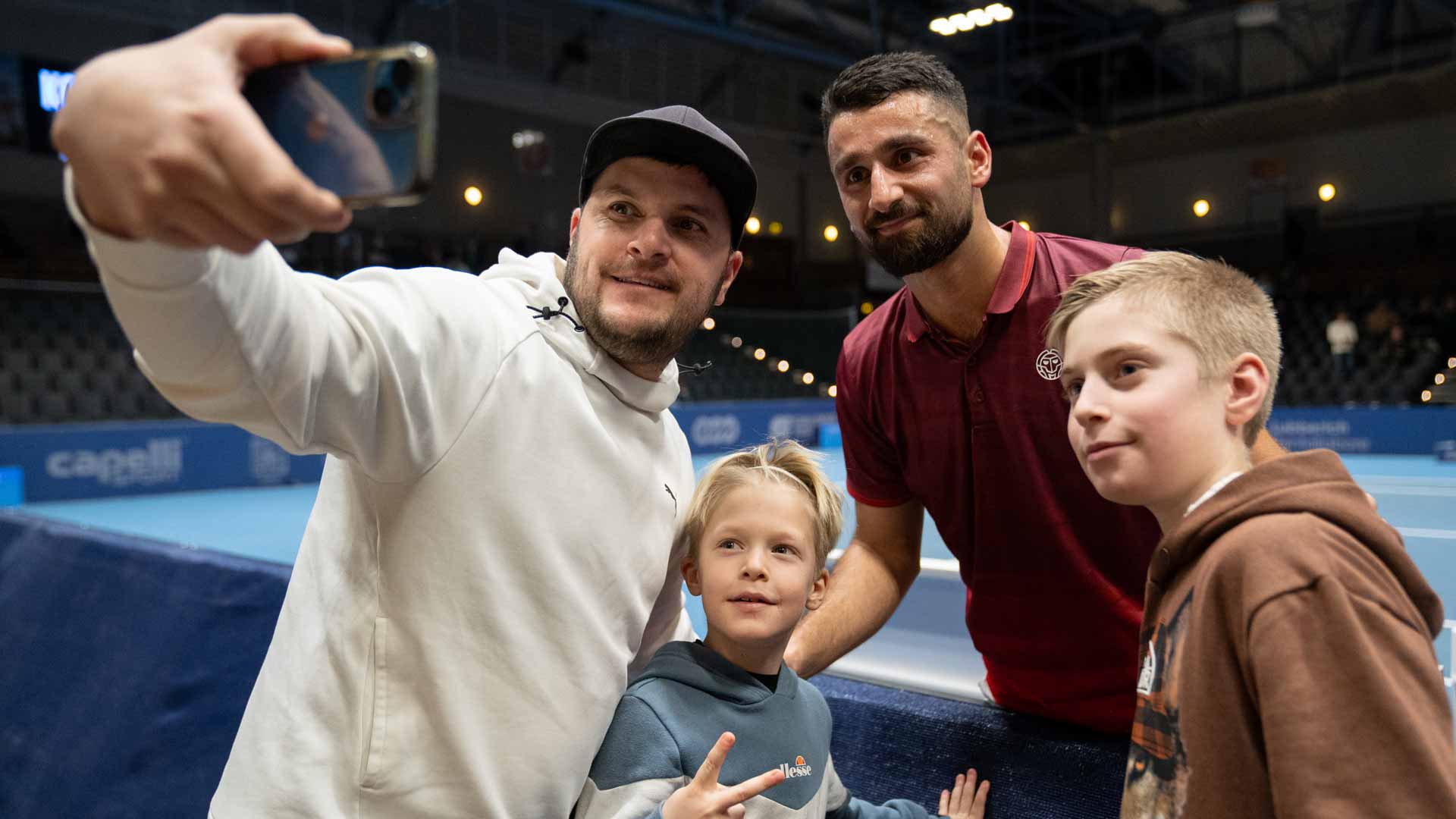

Syrian Hazem Naw remembers taking cover during a practice session in the capital city Damascus, where bombs were exploding less than 80 metres away. Seeking shelter alongside his coach, Naw felt the earth shake as an explosion took place on one of the five courts he was just practising on. The Syrian civil war was right before his eyes.
Naw’s adrenaline was sending shockwaves through his body. As the intense moment subsided, Naw discovered bomb fragments — a rock chip — in his arm, thankfully not beyond his skin, but still requiring a trip to the hospital.
Professional tennis seemed like a world away at this time. It was solely about survival. Nearly 80 per cent of Naw’s hometown, Aleppo, suffered significant destruction. Naw’s home courts, the Al-Hamadaniah Tennis Complex, where his father worked as a coach, were damaged in 2013.
“It was really early in the morning and I remember I was hearing my father and brother, they were talking about [the courts being bombed] and I was shocked. I jumped from the bed and they told me, 'Yes, the courts got bombed,’” Naw told ATPTour.com.

Hazem Naw as a ballkid at the 2009 Davis Cup Asia/Oceania Zone Group III, hosted at the Al-Hamadaniah Tennis Complex. Credit: Naw family
The Al-Hamadaniah complex needed two day’s worth of cleaning from rock chips and broken glass. Two kilometers away were the battle frontlines, making each practice a risk. Despite the danger, it did not stop Naw from training on the one court that suffered only minor damage.
“While we were practising, sometimes we would hear shots fired, so we would stop and go back home,” Naw said. “Every day we were coming to see how the situation was, if it was calm or not and depending on that, we would stay or go.
“[After] the courts got damaged, my brother and I practised six to eight months on those courts, but the situation was always dangerous. When we finished our practice, we would come back home like, 'We survived.'”
Born on New Year’s Day in 2000, Naw was first introduced to tennis by his father, Ahmad, at age five. “When I had the racquet in my hands, I felt love with the sport,” Hazem said. His older brother Amer, five years his senior, was tasting early junior success within their home country. But things took a drastic turn in 2011, when the Syrian civil war started.
“Until 11 or 12, I was playing tournaments and winning some, but most of the focus was on my big brother,” Naw said. “When the war started, our first goal was to survive the whole thing. My brother had a good ranking when he was 16, but because the war started, we were all shocked and we didn't know what to do. Everything was new for us at that moment. A lot of my father's students and their families moved.”
Naw moved alone to Damascus in 2015, with the support of the Syrian Tennis Federation. He began playing ITF junior tournaments spanning from central Asia to Europe.

Amer (left) and Hazem Naw play doubles in Beirut, Lebanon. Credit: Naw family
On a trip to Germany aged 17, Naw discovered his new home: Cologne, where a family friend resided, meaning the-then teenager had someone to lean on. Naw started training at the Rot-Weiss Tennis Club, where he still lives today alongside his brother Amer, who also serves as his coach.
“At that point, you don't have many options. You like it or you don't like it, it's the best choice so it was like that for me,” Naw said. “I had only [one option] and of course I had to choose it. Because coming back was very tough. For my family, it's tough for them that I live far from them. But they don't like to see me suffering, so that's why we made the decision for me to stay in Germany.”
Naw adjusted quickly to the new environment. He participated in Bundesliga events, a tennis league system where German clubs compete against each other. As he continued training in Cologne, he became close with several players who have enjoyed their own professional journey, including Dustin Brown, Oscar Otte and Andreas Mies.
The refugee Naw continues facing challenges. He can count on one hand how many times he has seen his parents since moving to Germany. After not seeing each other for the first five years following his move, Naw met his parents at an ITF World Tennis Tour event in Kish Island, Iran, which has since become an annual reunion for the family.
Last month, Naw was once again competing at the M15 on Kish Island. It was a perfect week for him, winning the title without dropping a set and seeing his parents for just the third time in the past eight years.

Hazem Naw and family at the ITF M15 in Kish Island last month. Credit: Naw family
The dream season continued this week at the ATP Challenger 100 event in Koblenz, Germany, where Naw became the first Syrian to win a main-draw match at that level. After advancing through qualifying, Naw built upon his momentum to reach the semi-finals.
Following each victory, Naw was in sheer disbelief. With his arms lifted in the air, he went to hug his brother and friends sitting in his box.
“It's a very special moment for me. I'm very happy and proud that I'm the first guy from Syria to do this,” Naw said. “I hope I can inspire some kids in Syria so that they can also move on with tennis or make it a popular sport in Syria.”
At a career-high No. 368 in the Pepperstone ATP Live Rankings, Naw acknowledges the tough moments have taught him valuable lessons. This week’s prize money of €5,740 will provide a short-term boost, but he is actively looking for a sponsor to help him continue his remarkable journey.

Hazem Naw greets fans at the Koblenz Open. Credit: Meierhans Fotografie
Beyond the financial aspect, there’s an intangible value to Naw’s rise: the gratitude he feels by simply competing on the ATP Challenger Tour, a chapter that seemed unlikely amidst being raised in a war-torn country.
“It's a bad experience, but what I experienced is what makes me really tough mentally on court,” said Naw, who will next be in qualifying action at the Cherbourg Challenger, starting 12 February. “It doesn't matter if I lose or win, I'm just happy to be able to play in these tournaments. It's like a dream come true for me.
“Of course when you're on court, you have this pressure and you forget about these things. But when I have tough times, it's not worth it to be angry or go crazy on court. Just be thankful that you're able to hold a racquet, play tennis, the spectators are watching and clapping for you. Enjoy that you are experiencing these kinds of things.”